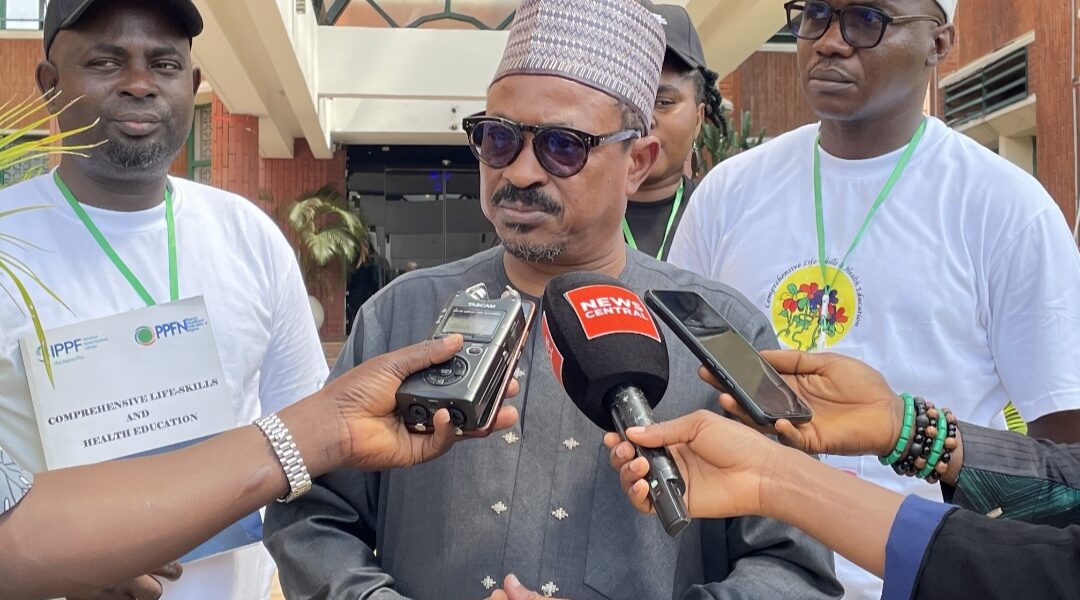The Executive Director of the Planned Parenthood Federation of Nigeria (PPFN), Dr. Okai Haruna Aku, has expressed strong concern over the Nigerian Senate’s decision to remove the clause on safe termination of pregnancy from the Criminal Code Amendment Bill. He warned that the move represents a serious setback for women’s health and rights, with grave implications for maternal mortality in the country.
According to Dr. Aku, the decision reflects a worrying lack of understanding of public health realities and a disregard for medical ethics. He explained that the intention behind such provisions is not to promote abortion but to ensure that women whose lives are at risk due to pregnancy complications can access timely and lawful medical care. Denying such access, he stressed, could lead to the preventable deaths of many women, particularly those in rural or underserved communities.
He further criticized the attitude of some political leaders toward women’s rights, saying that discussions around reproductive health should be guided by compassion, evidence, and respect for human dignity. Dr. Aku maintained that safe and informed medical intervention in life-threatening situations should never be politicized, emphasizing that protecting women’s lives is a matter of justice and responsibility.
“The danger is simple — more women are going to die,” he lamented.
“It is unfortunate that ignorance is killing us. If the Senate President can overrule a senator standing for the rights of women, it shows how backward we are. We are not advocating for abortion; we are saying that where a woman’s life is in danger, there must be medical intervention.”
Dr. Aku made these remarks during the graduation ceremony for students who completed modules under PPFN’s Comprehensive Life-Skills and Health Education (CLHE) intervention in selected schools across the Federal Capital Territory (FCT).
He emphasized that beyond legislative debates, the most effective way to safeguard young people’s futures is through education, by providing them with accurate, age-appropriate, and value-based knowledge about their bodies, relationships, and decision-making.
“We are calling on the Federal Government to take this comprehensive life and health education seriously and include it in the national school curriculum,” he said.
“It will improve the way our children, youths, and adolescents behave in terms of sexual and reproductive health and rights. Sexual reproductive health is also a human rights issue.”
He added that while subjects like biology touch on related topics, CLHE goes deeper, helping students develop self-awareness, confidence, and responsible behavior.
“If we incorporate this into the school curriculum, it will go a long way. And don’t forget, when you train a woman, you train a nation. If a woman is healthy, the family, the community, and the country will be better off,” he stressed.
Dr. Aku explained that PPFN continues to use value-based and culturally sensitive messaging in its advocacy to promote understanding of reproductive health issues without clashing with cultural or religious beliefs.
“We are not saying abortion should be legalised or that anyone should not give birth,” he clarified. “We are saying that family planning and informed choices are the foundation of healthy families.”
Graduating students from participating schools shared personal testimonies about how the CLHE modules changed their perspectives on self-care, respect, and gender relations.
Samsefet Omwa, a student of Government Secondary School, Lugbe, said she learned important lessons on menstrual hygiene and debunked myths she once believed.
“They taught us that painful menstruation doesn’t stop when you have sex, that’s a misconception. I’ve learned to take care of myself and to help others avoid ignorance,” she said.
Michael Eragbay Ahigbe, from Government Secondary School, Karu, added that boys also have a responsibility to support girls during menstruation.
“When girls have their period, we shouldn’t mock them. We should help and take them to a guidance counsellor if needed. The government should make this education part of the school curriculum so every student can learn it,” he said.
For Mrs. Olabisi Otusoya, a teacher from Army Day Secondary School, Mambilla Barracks, the training opened her eyes to the realities adolescents face.
“I thought I knew enough as a teacher, but I learned a lot from interacting with the students,” she said. “Many young girls take drugs to cope with sex or to ‘feel high,’ which shows how badly we need this kind of education. Parents should also talk to their children about sexuality and make them feel comfortable discussing such issues.”
Dr. Aku reiterated PPFN’s commitment to extending reproductive health education and services to adolescents, vulnerable groups, and internally displaced persons (IDPs) in conflict-affected regions.
He noted that the organization, established before Nigeria’s independence, has evolved from a family planning initiative into a comprehensive reproductive health and rights movement promoting adolescent health, menstrual hygiene, and gender equality.
“Sex is a natural thing, and our duty is to ensure that young people understand their bodies, make informed decisions, and live healthy lives. When young people take charge of their health, we build a healthier and more productive nation,” he concluded.


